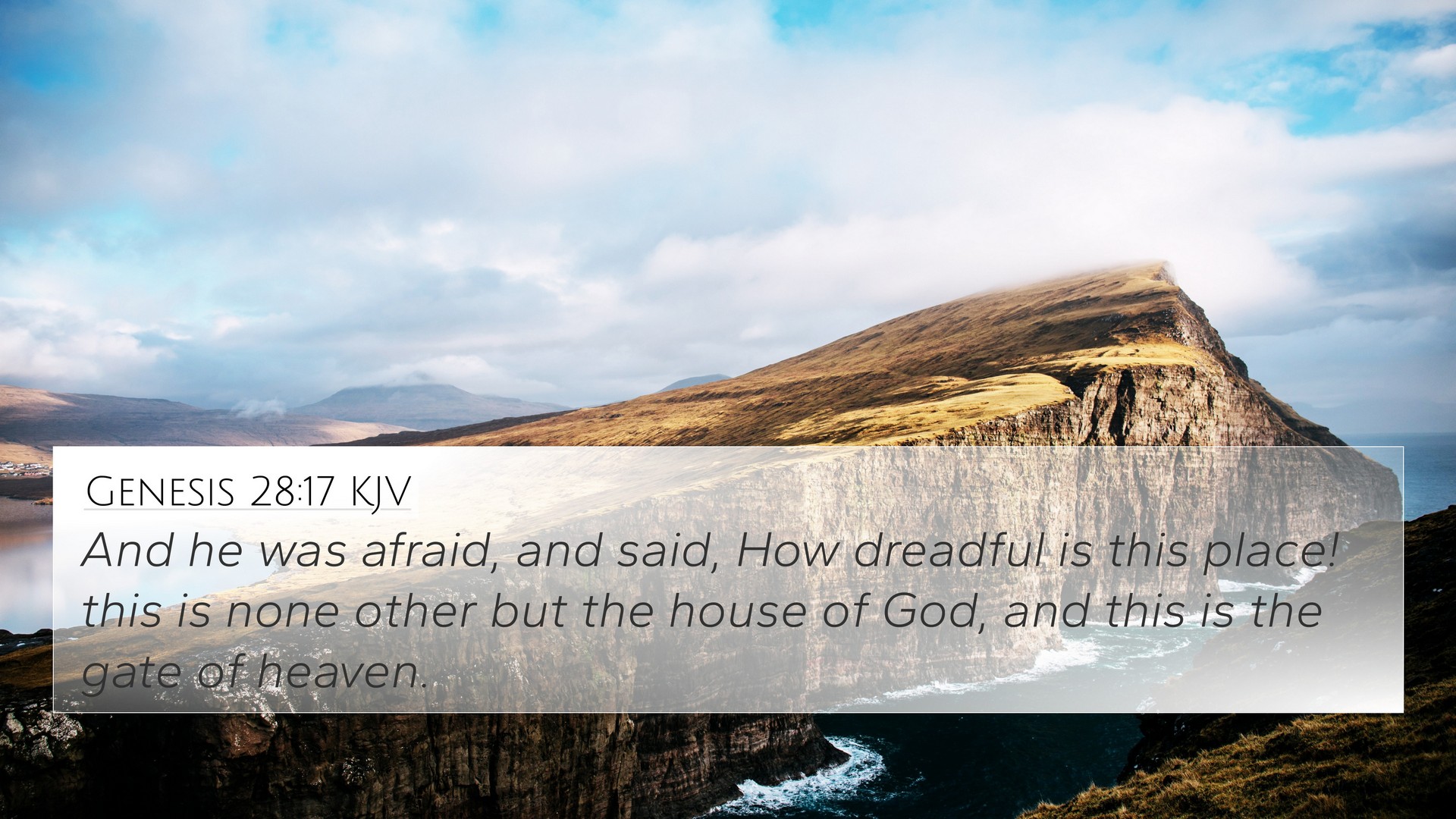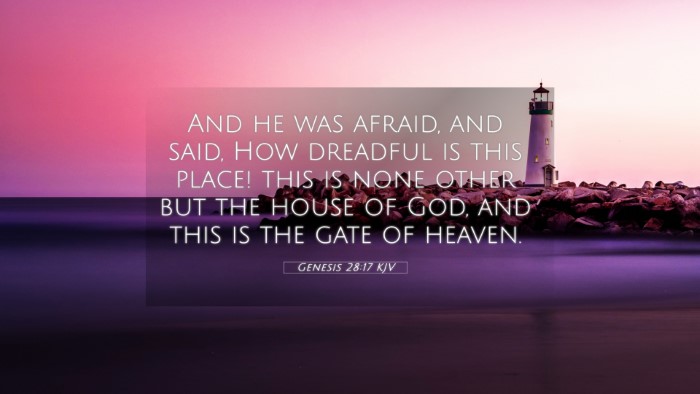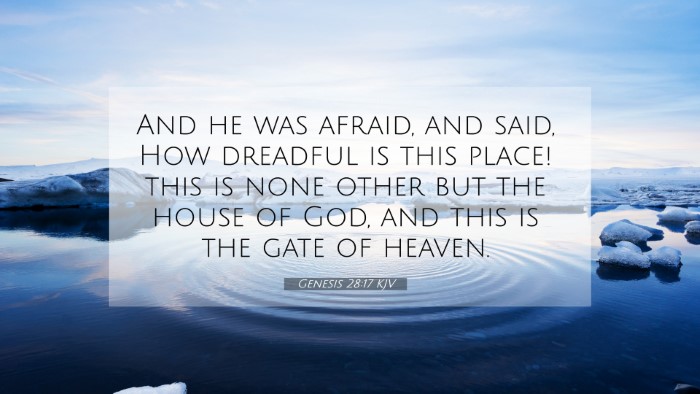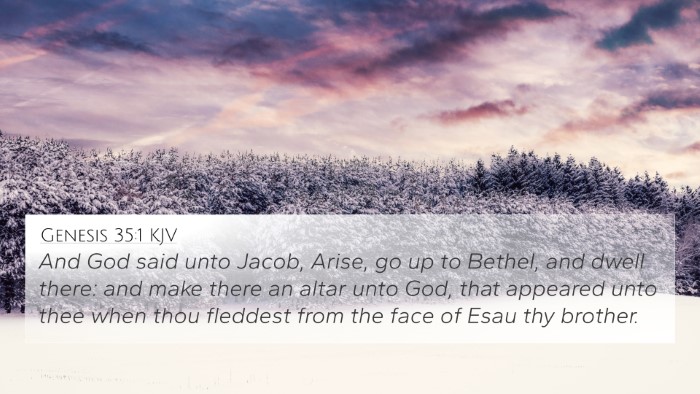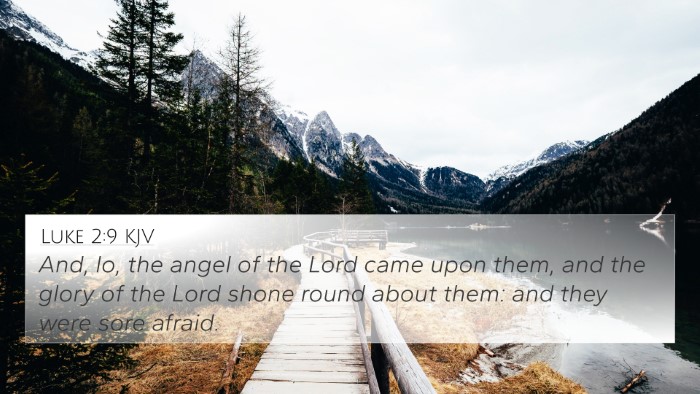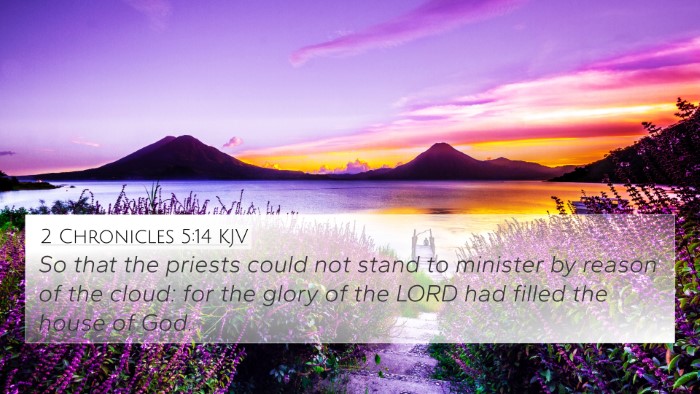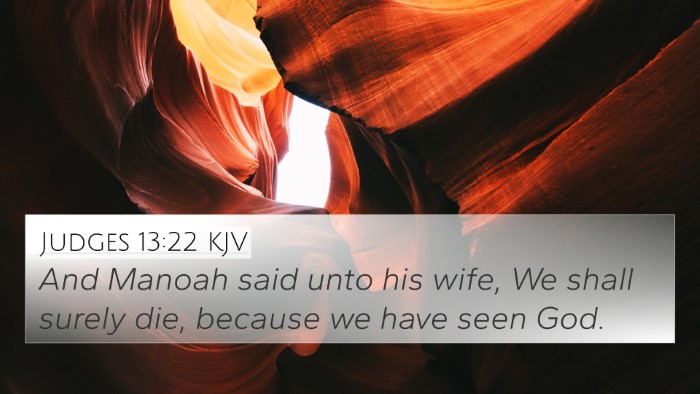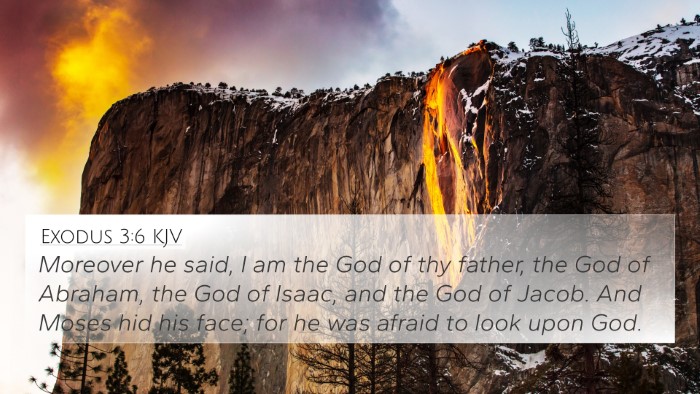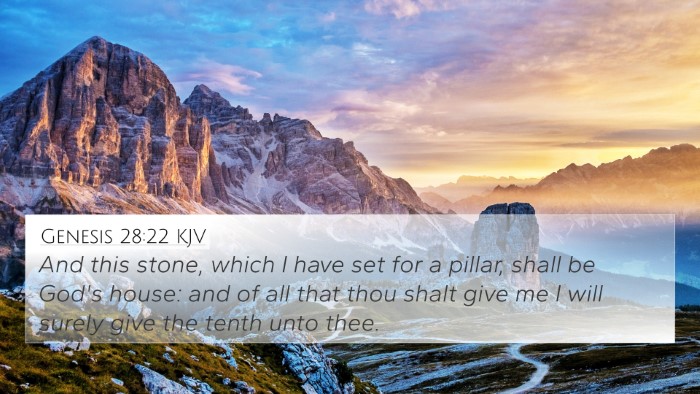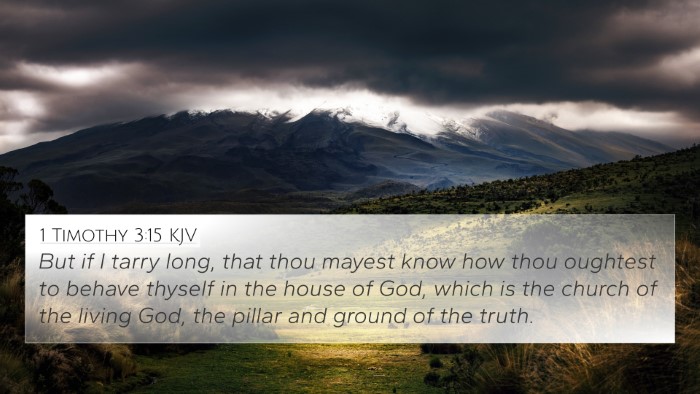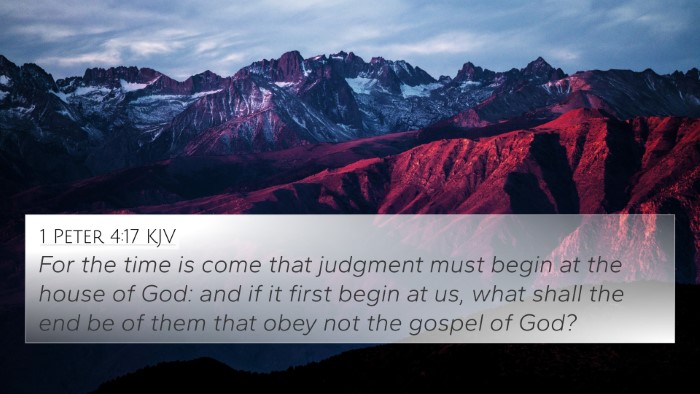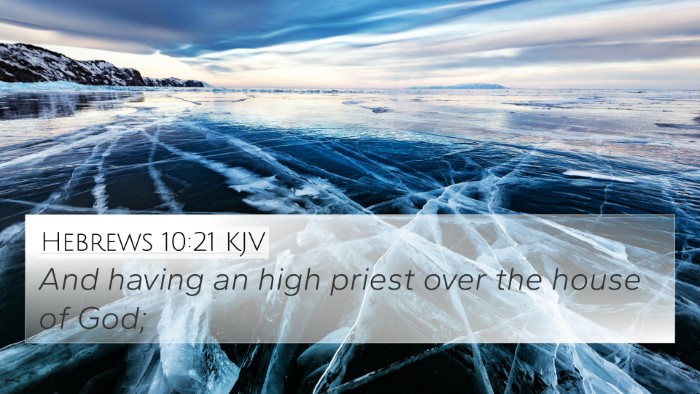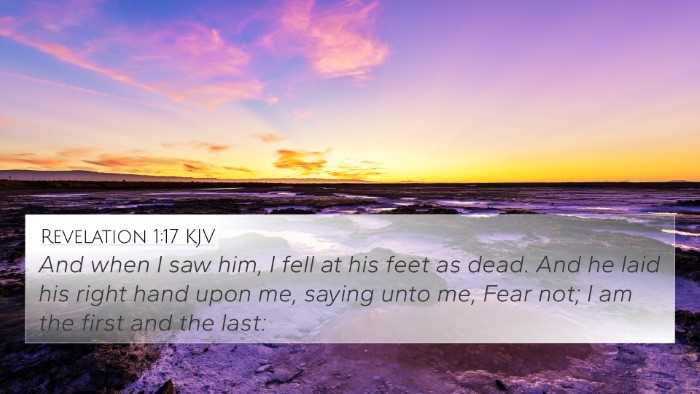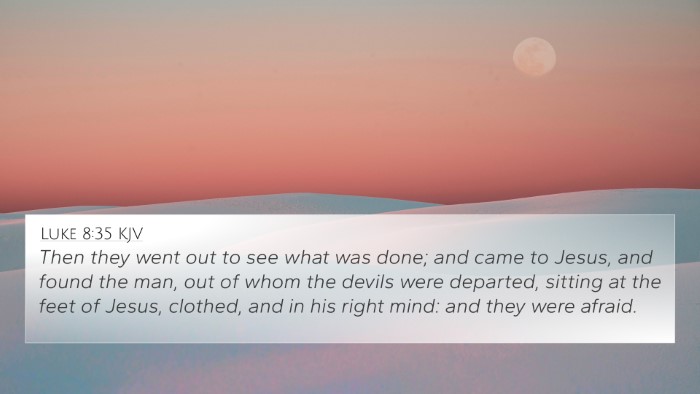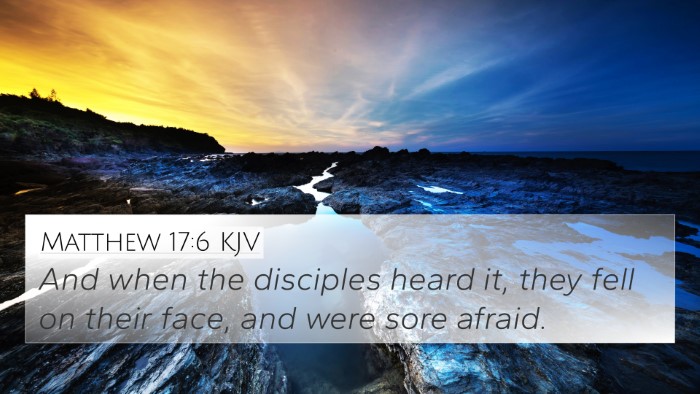Understanding Genesis 28:17
Genesis 28:17 states, "And he was afraid, and said, How dreadful is this place! this is none other but the house of God, and this is the gate of heaven." This verse is pivotal in understanding Jacob’s encounter with God and the significance of sacred spaces in biblical theology.
Summary and Interpretation
This verse reveals Jacob's deep sense of awe and fear in the presence of God. It emphasizes two main themes: the holiness of God's presence and the concept of a sacred space where heaven and earth intersect.
The Holiness of the Place
According to Matthew Henry, Jacob's fear stems from the realization that he is in a divine location, setting it apart as the house of God. When he calls it "dreadful," it reflects the weight of God's holiness and the awareness of being in the divine presence.
The Intersection of Heaven and Earth
Albert Barnes notes that Jacob perceives this place as the "gate of heaven," suggesting that it is a point of contact between the earthly and the divine. This aligns with the Christian understanding of Jesus as the way, the truth, and the life, establishing a bridge between humanity and God.
Significance in Jacob’s Life
Adam Clarke explains that this moment marks a transformative experience for Jacob. It illustrates a personal encounter with God that sets the tone for his future relationship with Him. This signifies a turning point in Jacob’s life where divine providence and guidance become apparent.
Cross-References for Genesis 28:17
- Exodus 3:5 - God instructs Moses to remove his sandals, for he stands on holy ground.
- 1 Kings 8:27 - Solomon acknowledges that even the highest heavens cannot contain God.
- Psalms 24:3-4 - The psalmist asks who may ascend the hill of the Lord, indicating the holiness of God’s dwelling.
- Isaiah 66:1 - God declares that heaven is His throne, and the earth is His footstool.
- Matthew 5:15 - Refers to the light of a city on a hill, suggesting a divine presence and purpose.
- John 1:51 - Jesus claims that he is the ladder connecting heaven and earth, reflecting Jacob's dreams.
- Revelation 21:2 - The New Jerusalem represents the ultimate dwelling place of God with humanity.
Thematic Connections with Other Bible Verses
Genesis 28:17 can be linked thematically with various other scriptures through the idea of divine encounters and sacred spaces. This verse serves as a gateway for further exploration into:
- God’s presence in the tabernacle (Exodus 25:8) - Where God commanded the Israelites to build a sanctuary for His dwelling among them.
- The significance of altars (Genesis 12:7) - Where the establishment of altars often marks encounters with God.
- The promise of God’s guidance (Proverbs 3:6) - A reminder that in acknowledging God, He directs our paths.
- The vision of heavenly worship (Revelation 4) - Connecting worship in heaven with the holiness Jacob experienced.
Application for Modern Believers
As modern believers interpret Genesis 28:17, it serves as a reminder of God’s holiness and the importance of recognizing sacred moments in our lives. This encounter urges believers to seek divine encounters and to acknowledge the spaces where they experience God's presence. Whether through church gatherings, personal prayer, or moments of worship, these interactions mirror Jacob's transformative experience.
Using Cross-References for Deepening Understanding
Utilizing tools for Bible cross-referencing can enhance one's study of Genesis 28:17. Resources such as a Bible concordance or a cross-reference Bible study guide can provide insights into the connections between this verse and others, enriching one’s understanding of God's overarching narrative. Engaging in comparative Bible verse analysis can illuminate how themes of God's presence, holiness, and divine encounters resonate throughout Scripture.
Conclusion
Genesis 28:17 encapsulates a profound moment of revelation, reminding believers of the sacredness of encounters with God. By examining this verse alongside related scriptures, one can gain a comprehensive understanding of its thematic essence and spiritual significance. The interpretations found in public domain commentaries offer invaluable insights, inviting deeper reflection on the ways God interacts with humanity across time.
